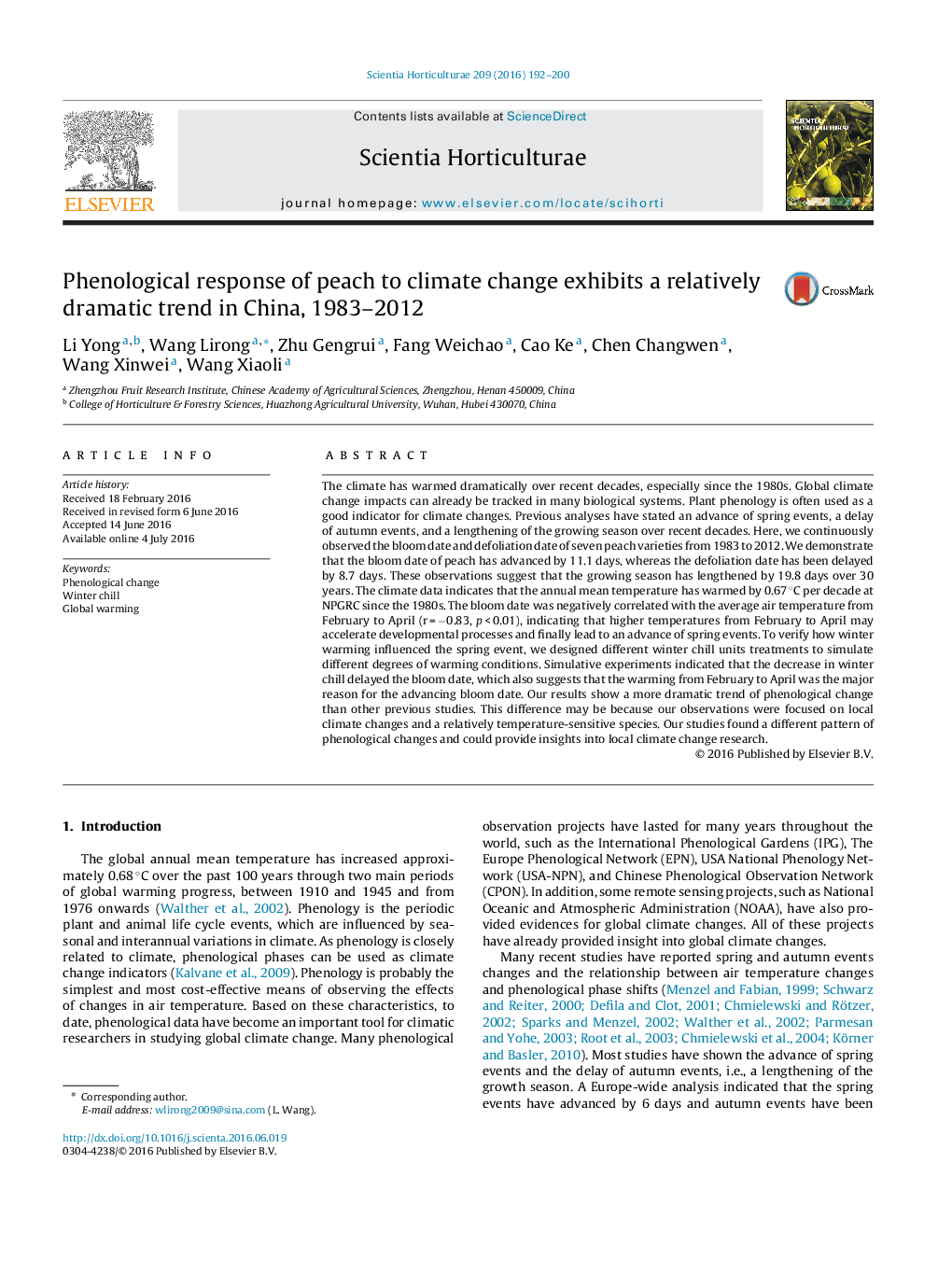| کد مقاله | کد نشریه | سال انتشار | مقاله انگلیسی | نسخه تمام متن |
|---|---|---|---|---|
| 4565969 | 1628789 | 2016 | 9 صفحه PDF | دانلود رایگان |

• Bloom date of peach has advanced by 11.1 days and defoliation date has delayed by 8.7 days over 30 years.
• Phenological changes of peach showed a more dramatic trend over 30 years.
• The major reason for advanced bloom date was the increase of spring temperature.
The climate has warmed dramatically over recent decades, especially since the 1980s. Global climate change impacts can already be tracked in many biological systems. Plant phenology is often used as a good indicator for climate changes. Previous analyses have stated an advance of spring events, a delay of autumn events, and a lengthening of the growing season over recent decades. Here, we continuously observed the bloom date and defoliation date of seven peach varieties from 1983 to 2012. We demonstrate that the bloom date of peach has advanced by 11.1 days, whereas the defoliation date has been delayed by 8.7 days. These observations suggest that the growing season has lengthened by 19.8 days over 30 years. The climate data indicates that the annual mean temperature has warmed by 0.67 °C per decade at NPGRC since the 1980s. The bloom date was negatively correlated with the average air temperature from February to April (r = −0.83, p < 0.01), indicating that higher temperatures from February to April may accelerate developmental processes and finally lead to an advance of spring events. To verify how winter warming influenced the spring event, we designed different winter chill units treatments to simulate different degrees of warming conditions. Simulative experiments indicated that the decrease in winter chill delayed the bloom date, which also suggests that the warming from February to April was the major reason for the advancing bloom date. Our results show a more dramatic trend of phenological change than other previous studies. This difference may be because our observations were focused on local climate changes and a relatively temperature-sensitive species. Our studies found a different pattern of phenological changes and could provide insights into local climate change research.
Journal: Scientia Horticulturae - Volume 209, 19 September 2016, Pages 192–200